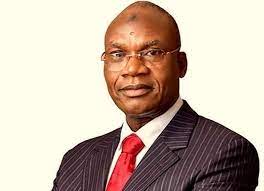The Minister of Education, Prof Tahir Mamman, on Tuesday said having a comprehensive National Policy on Skills Development would enhance the skills of the nation’s workforce and by so doing, catalyze the productivity of the youths in the country.
The minister pointed out that adopting the policy would enable Nigerian youths to compete with their counterparts in order countries in the increasingly changing global labour market by positioning them to adapt to the changes and making them more innovative with the attendant implications for Nigeria’s sustainable development.
Mamman, who made these remarks in Abuja while declaring open a one-day pre-validation meeting on the draft National Policy on Skills Development, said: “As the Honourable Minister of Education, I am proud to witness the culmination of our collective efforts in shaping this important policy. We have engaged in robust discussions, exchanged valuable perspectives and worked tirelessly to ensure that this policy truly reflects the needs and aspirations of our nation.
“The development of a comprehensive National policy on Skills Developments crucial step in our journey towards equipping our youth with the necessary skills to thrive in the 21st- century job market, in a rapidly evolving global landscape, the ability to adapt, innovate and contribute meaningfully to the workforce has become increasingly paramount
“Through this policy, we aim to bridge the gap between education system and the demands of the labour market. By aligning our educational curriculum and training programmes with the skills required by industries, we can empower our young people to become active participants in the economic growth and development of our beloved country”, the minister added.
He urged the participants to approach the discussions at the forum with a renewed sense of purpose and a deep commitment to shaping a future where Nigerian youths are empowered to reach their full potential.”
According to him, the participants’ expertise, insights and collective wisdom will be instrumental in refining and strengthening the policy to serve as a robust framework for skills development across Nigeria.
The minister further said: “Together, let us embark on this transformative journey, where education, skills and entrepreneurship converge to create a more prosperous and equitable society for all.”
In his remarks, the Minister of State for Education, Dr. Yusuf Tanko Sununu, pointed out that the National Policy on Skills Development represented a testament to the ministry’s commitment to empowering youth and equipping them with the skills necessary to thrive in the ever-evolving job market.
He maintained that in a world that is rapidly transforming, the ability to adapt, innovate and respond to the changing needs of industries had become increasingly crucial.
Sununu explained that the policy was designed to bridge the gap between the labour market, ensuring that our young people are not only academically equipped but also possess the practical skills and competencies that employers seek.”
In his welcome address at the event, the Permanent Secretary in the ministry, Dr Nasir Sani-Gwarzo noted that the 2-day stakeholders consultation meeting held on 30th and 31st May 2024, had laid the foundation for the pre-validation meeting.
Represented by the Director of ICT in the Ministry, Mr Abubakar Isa, the Permanent Secretary said: “This policy has the potential to transform the lives of millions of Nigerian youth, both in school and out-of- school, in formal, non-formal, and informal sectors of education.
“The draft policy before us today is a testament to the tireless efforts of the Federal Ministry Education, UNICEF and UNESCO, who have worked together to develop a comprehensive framework that addresses the diverse needs of our learners from foundational to transferable, digital and job specific skills”, he stressed.
While noting that the implementation of the policy will require the collective efforts of all stakeholders, including government, private sector, civil society and the education community, Sani-Gwarzo urged the participants “to think creatively about how we can work together to create an ecosystem that supports skills development, Innovation, and Entrepreneurship.”






